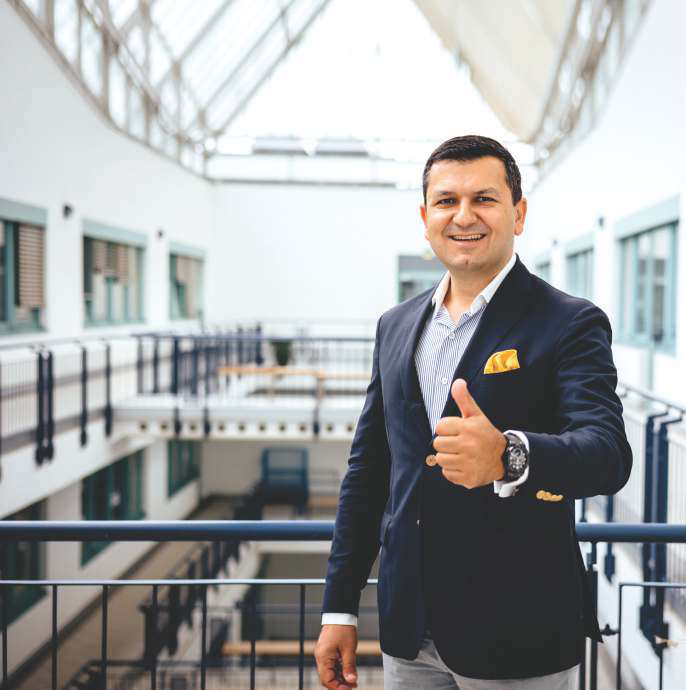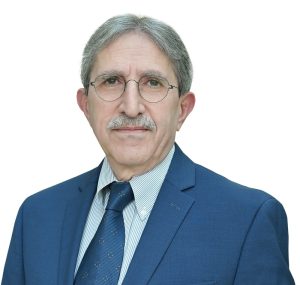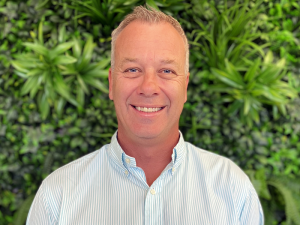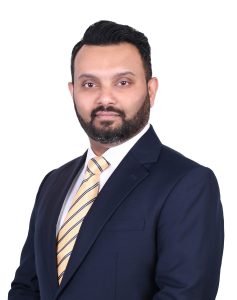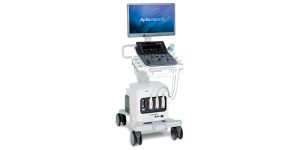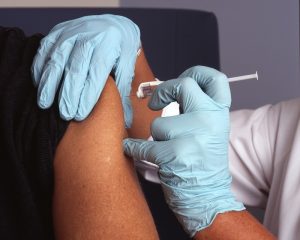“Our approach focuses on achieving cost benefits to ensure that as many people as possible can benefit from this technology, We actively seek the right go-to-market partners, including health systems and public health systems, to facilitate mass adoption.”
Dr. Ali Tinazli, CEO, Lifespin
By Mohammed Irshad
In an era where precision medicine has the potential to transform healthcare, accessibility, and affordability remain significant challenges. However, Lifespin, a pioneering company in the field, is on a mission to change the game. I had the privilege of sitting down with Dr. Ali Tinazli, the visionary CEO of Lifespin, who shared valuable insights into the company’s mission, challenges, and groundbreaking solutions. With a focus on making precision medicine accessible to primary care physicians and reducing healthcare costs, Lifespin’s innovative approach, led by Dr. Tinazli, is set to revolutionize the industry.
Dr. Ali Tinazli, at the helm of Lifespin, is driving the core mission to make precision medicine accessible and affordable for everyone. Traditionally, such cutting-edge tools were only available at renowned medical institutions. However, under Dr. Tinazli’s leadership, Lifespin aims to challenge this norm by empowering primary care physicians to prescribe and provide access to precision medicine tools. By doing so, Lifespin strives to reduce hospitalizations and alleviate the burden of healthcare costs, emphasizing scalability and cost-efficiency as crucial factors in achieving this ambitious goal.
Redefining Medical Testing and Patient Care through Advanced Technology
“Scalability and cost-efficiency are crucial aspects of achieving our mission,” Dr. Tinazli highlights. “We aim to democratize precision medicine by making it accessible to a broader population. This means ensuring that our technologies can be implemented in primary care settings and that the associated costs are reasonable. By doing so, we can empower physicians and patients alike to benefit from the advancements in precision medicine.”
Dr. Tinazli also sheds light on the challenges faced by Lifespin and the healthcare industry as a whole. The rapid influx of new technologies, such as data science, machine learning, and AI, presents regulatory and insurance complexities. While obtaining approvals and certifications is important, gaining support from insurance companies and other stakeholders is equally crucial.
“To accelerate the adoption of innovative solutions, we need transparent and understandable technologies,” Dr. Tinazli emphasizes. “Building trust and educating healthcare stakeholders are vital components of overcoming barriers and driving change in the healthcare industry. We are committed to working closely with regulatory bodies, insurance companies, and healthcare providers to navigate these complexities and ensure the widespread adoption of our technologies.”
One of Lifespin’s groundbreaking contributions is their metabolic profiling platform, which has emerged as a game-changer in drug monitoring. Leveraging advanced scanning techniques, Lifespin captures small molecules in the blood, providing quantitative information on hundreds of metabolites, including therapeutic drugs. This approach enables precise adjustments in drug dosage, minimizing side effects, and ensuring optimal treatment outcomes.
In collaboration with hospital partners, Lifespin is on the verge of launching its first panel for therapeutic drug monitoring. This panel will cater to transplant patients and individuals receiving immunosuppressants, antibiotics, or antimicrobials. By providing accurate and real-time information on drug levels, Lifespin’s platform enables healthcare providers to optimize treatment plans, reduce adverse reactions, and enhance patient safety.
As Lifespin continues its journey, driven by a passion for innovation and accessibility, the company envisions a future where precision medicine is an integral part of primary care. By bridging the gap between cutting-edge technologies and everyday healthcare, Lifespin aims to transform patient outcomes and contribute to a more equitable and efficient healthcare system.
Revolutionizing Healthcare with AI-Driven Diagnostics
In the realm of healthcare diagnostics, Lifespin stands proudly at the forefront of the revolution. With their groundbreaking Lifespin’s Amino Acid Profiler (LAAP), powered by artificial intelligence (AI), Lifespin is ushering in a transformative era in medical testing and patient care. LAAP represents a pioneering leap that is reshaping the healthcare landscape, offering innovative and precise diagnostic capabilities that were previously unimaginable.
Dr. Tinazli’s LAAP takes a unique approach, where most of the work is done in silico. “Let me explain our workflow as an example,” Dr. Tinazli begins. “We take a patient’s blood sample and convert it into serum or plasma. We then add phosphate buffer and an internal calibration standard. The sample is inserted into the instrument and scanned for a few minutes using radio frequencies in a magnetic field. The result is digital spectral information that quantitatively includes the details of hundreds of metabolites. That’s it.”
The key differentiator between Lifespin and traditional labs lies in the heavy reliance on algorithms developed and continually refined using their proprietary biobank. The LAAP’s simplicity is striking – minimal equipment is required, including a centrifuge, an automated pipetting system, and a sample loader. This streamlined workflow not only reduces labor and chemical reagent costs but also makes the technology more accessible to a broader population.
“Our approach focuses on achieving cost benefits to ensure that as many people as possible can benefit from this technology,” Dr. Tinazli emphasizes. “We actively seek the right go-to-market partners, including health systems and public health systems, to facilitate mass adoption.”
While the technology itself is groundbreaking, the market’s openness and willingness to embrace new technologies are equally crucial. Dr. Tinazli found the Middle East region particularly promising in this regard. “When I visited MENA for the first time, I was genuinely excited by the open-mindedness and motivation of the people here to embrace new technologies,” he shares. “It’s a unique and promising environment.”
We delved deeper into Lifespin’s operations, discussing the process of analyzing blood samples and delivering the results to healthcare providers. Dr. Tinazli explained, “We have built our proprietary Biobank, which serves as our corporate asset. Any insights obtained from these samples are exclusively owned by us. This allows us to develop proprietary algorithms that can be sold as medical devices, even though they are software-based.”
The diagnostic process itself is performed in silico, enabling decentralization and operation anywhere. Dr. Tinazli envisions establishing laboratory infrastructures locally with the help of partners responsible for sample collection, logistics, and instrumentation. These partners capture information and upload raw data to Lifespin’s cloud, where it is analyzed using proprietary algorithms. The results are then imported back online, following a software-as-a-service (SAAS) model.
Introducing New Frontiers in Diagnostic Solutions
Dr. Tinazli adds, “We constantly improve our algorithms, introducing more products to the market. This year, we plan to launch three additional products.” In terms of data privacy, Lifespin ensures the protection of patient identities by anonymizing all patient information. However, meta-information is utilized to understand how comorbidities or treatment plans impact health conditions, enabling better decision-making for physicians.
Furthermore, Dr. Tinazli shared a compelling anecdote

